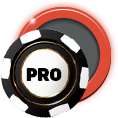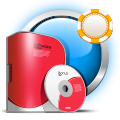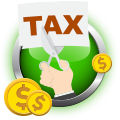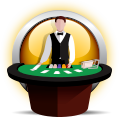Turning Pro

If you love poker, chances are you've considered dumping the drudgery of the day job and going pro.
Getting sponsorship, getting up when you want, earning megabucks and travelling the world; the pluses of turning pro are attractive indeed.
But the downsides can be serious. Many pros go bust, some turn to gambling addiction, and others who'd happily crushed the games suddenly find themselves beaten by the new generation of player.
So, could you do it? And how would you even go about it. Let's take a look at how your poker journey can get up and running.
Equipment and Tools
Before you get started, get your equipment set up. As an online pro you'll need to invest some solid kit to make earning as much cash as possible a breeze:
- The biggest widescreen monitor you can afford
- Fast broadband Internet
- An ergonomic chair
As you'll be sat at a desk for hours on end, consider spending some serious cash on a solid ergonomic chair to avoid back problems. Also buy a big widescreen monitor. Better, buy two! Then, you can keep one screen for multi-tabling comfortably, and the other for all your social media, email etc.
Software and Programs
Cash Games

For online cash players, fork out a few bucks for Holdem Manager (www.holdemmanager.com) or PokerTracker (www.pokertracker.com). Holdem Manager is now in its second incarnation and features a brand new interface to make information-gathering even easier.
Essentially, both programs are Heads-Up Displays (HUDs) which sit on top of your cash games and display information on your opponents, such as percentages on VPP (Voluntarily Paid into Pot) and PFR (Pre-Flop Raise).
While some poker sites don't allow HUDs to be used, many do so they can be good for gleaning info on regular players you'll keep coming up against. You can also try out the programs free for 30 days before buying.
SNGs
If you're planning on playing Sit 'n Gos for a living, no player should go without SitNGo Wizard (www.sngwiz.com).
The program teaches you how to improve your SNG game at the various stages of an online single-table tournament, from early and mid to late stage and heads-up. It will also analyze your position and hands in any given moment to advise folding, raising or calling.
The program loads up hand histories from games you've played on a range of leading poker sites. It then generates charts and spreadsheets based on your play.
For anyone interested in going over old hands and improving for the future, SNG Wizard is invaluable.
Benefits of Going Pro
- You're your own boss
- Get to travel the world and set your own agenda
- The financial rewards can be huge
What jobs let you travel the globe, visiting countries you've never been before, mixing with your peers, and earning lots of lovely cash - all while not having to answer to a boss?
Poker gives you all that and more. Multi-million dollar tournaments are everywhere now, and the big cash games run 24/7 from California to Atlantic City and Macau to London.
As a poker pro, you're only restricted by your bankroll, your timetable and your ability. Are you ready to mix it with the best?
And even if you've seen photos of Daniel Negreanu's (career earnings: $29 million and counting) new villa and salivated over having the same, consider this: most pros do perfectly fine on a wage of $30-$40,000 a year.
Being a pro isn't all about being a millionaire; there are many unsung poker pros who grind along making a respectable wage.
Downsides of Going Professional

- The variance affects everyone
- It doesn't look good on a resumé
- It can be a lonely life
- The players are much tougher now
Speak to most online pros and they'll tell you the same thing: the game is a lot tougher to beat now than it used to be.
To be fair, pros were saying the same thing in 2008 about players then so it's a cyclical thing. But the truth is that players are always improving. Yes, a lot of grinders or "regs" (solid players who grind out a living at medium stakes) leave the game or get bored and go off to find "real" jobs. However, overall you'll have to keep improving in order to maintain an income.
You could, of course, become a grinder yourself, picking a $10/$20 SNG you're happy with or a sweet site with $0.25/$0.50 No Limit Hold'em games that you can regularly crush without much bother.
The question is: where's the fun in that?
Finally, if you're intending to back to the 9-to-5 grind one day, consider how any future employers will regard an 'online poker pro' on your past employment record.
There have been many tales of employers, particularly in the US, looking down on poker as a profession; so much so, in fact, that they will oftentimes strike it from an applicant's resumé.
Set Out Your Career Missions
Being an online pro is ultimately about earning a living, and it's important to have goals.
If you were earning $40,000 a year in an office somewhere, are you aiming to earn the same after you've jacked it in and turned pro, or a lot more?
Ask yourself: do I have the motivation to get up and sit at my computer for 10, 11 or 12 hours a day (and a lot of nights) playing poker, only to end up the evening with nothing to show for it?
Are you also prepared, like so many self-employed home-workers are, to be by yourself for long periods without much human contact?
And what about variance?
Variance hits everyone, even Phil Ivey, and sometimes you WILL go broke. Don't argue that poker is a game of pure skill where good players will always be in profit. It isn't, and they won't.
Tax Needn't Be Taxing

Unless you live in the UK, Australia, or another country with favorable tax laws that don't class gambling as a taxable income, you're going to have to get your finances in order.
That means registering as self-employed with your local tax office and keeping records of everything. As a professional gambler, you can claim expenses on anything you'll need for your 'job', like computer equipment, training and travel costs.
The tricky part comes to filing a tax return. How do you quantify losses when you've been on a downswing? Take the effort out of the paperwork and hire an accountant; it will leave you free to get on and play poker.
Starting Out: Coaching and Staking
If your bankroll is low, consider trying to get staked. There are many sites out there that stake and coach promising players.
The criteria are a little stricter than it was a few years ago; you'll have to pass qualifying 'exams' first and prove a solid recent record before you qualify.
However, if accepted on a program, you will be given funds to play online with every day, with a cut of anything you win going back to the coaching site. You'll also get one-to-one tuition from a pro who will watch as you play via TeamViewer or Skype.
Coaching sites can be good, especially if you have trouble managing a bankroll. However, oftentimes coaching 'stables' are just a way for firms to get volume of play going through a network and earning rakeback on their sponsored players (i.e. money back from the poker sites in the form of cashback).
Get Out the Begging Bowl
If you don't mind asking for something, there are plenty of staking forums online that let you ask fellow pros for buy-ins to tournaments.
You'll usually have to list the buy-in you need, a list of recent results and long-term profits, and the cut you're offering the staker.
Percentages can vary, but normally if you ask for 100% of a tournament buy-in, you'll offer 40-50% of anything you win. If you bust out, the staker loses everything.
Obviously, getting staked has risks for both sides, but as long as there's a relationship of mutual trust between two parties, there's no reason why you can't both come out winners.
Watch and Learn

If you're going it alone, you can improve your game by watching videos or reading strategy articles online. Here are some good tips for improving your play:
- Join as many online forums as possible
- Get a good staking deal that's right for you
- Watch training videos and read articles
It's a good idea to use training videos too. Check new online portals like Twitch where pros upload videos of themselves playing and commenting on their moves.
Twitch is growing in popularity as big names like Daniel Negreanu and Jeff Gross take to the streaming site to divulge their secrets.
Getting Your Finances In Order
Bankroll management is absolutely essential if you're going to make it and avoid going broke in the process.
Setting a limit you're comfortable with is the first step. If you can regularly crush the lower and mid-stakes cash games, start moving up the levels slowly until you realize you've gone too far.
Make sure your bankroll can take a hit. To do that, ensure you only buy-in with a percentage of your entire roll. Therefore, for example, you should have 50 buy-ins for a $22 Sit n' Go (and that goes for EACH table if you're multi-tabling).
For cash players, aim to have 50 buy-ins at a particular stake. For example, in a $0.25/$0.50 No Limit Hold'em, the max. buy-in might be $50. So, you would need $2,500 for one table.
Understanding ROI
Look at your ROI (Return on Investment) too. You should be aiming for a return of 10% to start off with and 15% after that. (That's, 15% profit from everything you put in in stakes). 30% is very good, but hard to sustain.
For example, a professional online MTT (multi-table) player hitting buy-ins around $15-$16 and playing around 200 a month would need an ROI of 25% to make around $10,000 a year. As you move up the stakes, the potential profits increase.
Obviously, your Return on Investment can spike hugely if you take down a big guaranteed prizepool tournament, but understanding that swings can go down as well as up is all grist for the mill.
Multi-Tabling

Learning to successfully multi-table is a key factor in going pro. How many games you play is up to you, but to get in the required volume to make it worthwhile is a real skill.
To really achieve the thousands of MTTs, SNGs or cash game hands you'll have to play to turn a profit, you need to be multi-tabling every time you log on.
That means learning to keep tabs on every screen, and all the action, effectively in order to make a profit. Grinders or 'regs' (regulars) will multi-table the same stakes over and over. In fact, you'll likely come up against the same old players again and again, especially if you stick to one network.
Use your knowledge and take notes on regular players; that way you can avoid them or target them the next time you meet.
In today's games, however, the 'regs' are getting so good that many established pros are really struggling.
Give it a Shot
If you're not sure about making the move, try it out for a month. Take time out in the evenings after work and during downtime at weekends to see how you fare.
You'll know how good you think you are right now; going pro makes you really appreciate how far you have come.
If successful, being a poker pro gives you the chance to work when you want, travel the world and earn some serious cash. But approaching poker as a career with a level head is the first step to a lucrative profession.










